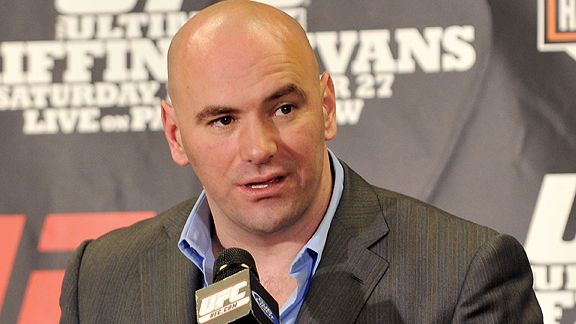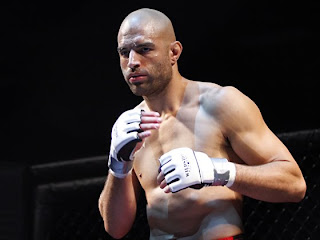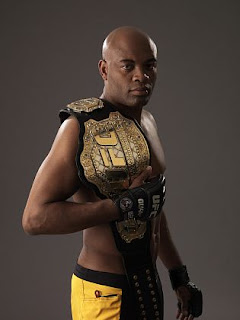Mixed martial arts is like many other sports, in that it’s better when fans choose sides. Picking one fighter or the other adds excitement to the event and gives us someone to root for as the fight takes place. However, there is one fight that the MMA community has chosen sides in, whether they know it or not. The battle between the UFC and critics of surrounding fighter pay is far from over, but with each media blow, the UFC continues to gain strength, which is an interesting result in today’s sports age.
In recent weeks, comments made by former UFC fighters John Cholish, Jacob Volkmann, and Jon Fitch have raised eyebrows in the debate about whether fighters on the UFC roster are being fairly compensated for stepping into the Octagon. Cholish has stated openly that he has gone in the red each time he competed for the UFC, as his training and traveling expenses exceeds his fighter pay. He points towards his last bout in Brazil, where he was paid a little more than $2,000 for his participation — a paltry amount in most sports, no matter how you shape it. Volkmann and Fitch were both recently cut from the UFC and signed by the World Series of Fighting promotion. During the press conference for the upcoming WSOF 3 card, both fighters addressed the topic of how the UFC treats their competitors. Especially after Quinton “Rampage” Jackson‘s comments at the press conference announcing his signing with Bellator MMA, it seems that everyone who leaves the UFC has something negative to say about their former employer.
UFC President Dana White hasn’t taken the argument lying down. In the way that only he can, Dana has come out swinging against the former fighters, even revealing Fitch’s discretionary bonus payouts since joining the UFC. White points towards nearly $432,000 in total bonuses that Fitch was paid, and uses that to detract from Fitch’s “hostile work environment” comments. But does that mean that since the fighter was paid, he shouldn’t have any complaints against his former employer?
The responses of MMA fans have been equally interesting during this debate. It seems that since the fighters that are speaking out about the UFC’s work practices are former UFC fighters, their side of this conversation is almost immediately invalidated. MMA media members have taken to Twitter, Facebook, and other media outlets to debunk what the fighters have said and write them off as bitter former employees. But let’s take a look at this issue a little more closely to understand why the media and fan base are more likely to side with the promotion over the fighters.
Contract issues are not new to professional sports. We see it every year with major stars and “big league” teams across baseball, basketball, football, and other sports. Athletes wanting a larger piece of the revenue generated by their performances nearly ended the NHL season this year, and nearly did the same to the NBA season the year before. But the critical point in those disputes is that the public knows how much of a percentage the athletes were getting in revenue, compared to the league themselves. This public knowledge makes it easier for fans to decide which side of the argument their allegiances will fall upon.
The UFC is privately owned, thus it does not have to reveal anything about its financial status. In this situation, it is very understandable why it doesn’t. There’s no way for media or fighters to know exactly how much the athletes receive in comparison to the promotion as a whole. Dana White often points out that the UFC is responsible for the financial development of nearly 20 millionaires that have performed in the Octagon. But that number would be much more informative if it was known exactly how many millionaires the organization has had the opportunity to make over the years. Revealing the company’s spending structure might help prove Dana White’s point in this argument, but at the current time it doesn’t seem as if Zuffa has anything to gain from disclosing such information.
The topic of a UFC fighter’s union also keeps coming up as well. However, at this time, that question shouldn’t be posed to lower-paid fighters such as Cholish or Volkmann. The creation of a union would hinge largely on the likes of Jon Jones, Georges St. Pierre, and the others that sit at the top of the income mountain. These are the individuals that generate the revenue that ensures that other fighters get paid, and they would have to be the ones to give up their “power” to make any union work. Players unions have worked in the mainstream sports that dominate coverage, but with the independent contractors that occupy the UFC’s roster, they lack significant traction to be able to successfully form a union, let alone replicate the other unions’ successes, at this time.
Another issue is the question of support from the fans of MMA. They really have power in this debate, but the only way to wield it would be to stop supporting the UFC until it truly answered the fighter pay questions that it faces. Unfortunately, this will never occur. Without the work the UFC has done, MMA wouldn’t even be a viable sport at this time. And to expect fans to just stop watching the highest level of competition is absurd to ask, especially without any viable alternatives.
The UFC has not yet reached a crossroads when it comes to fighter pay. Luckily, the UFC has not had to deal with a major star such as Georges St. Pierre making negative statements about how he and his peers are paid. If he did, the organization would have a serious problem on its hands. Until then, Dana White, Lorenzo Fertitta, and the rest of the Zuffa brain trust can continue with their current approach, as fight fans will remain on their side.




